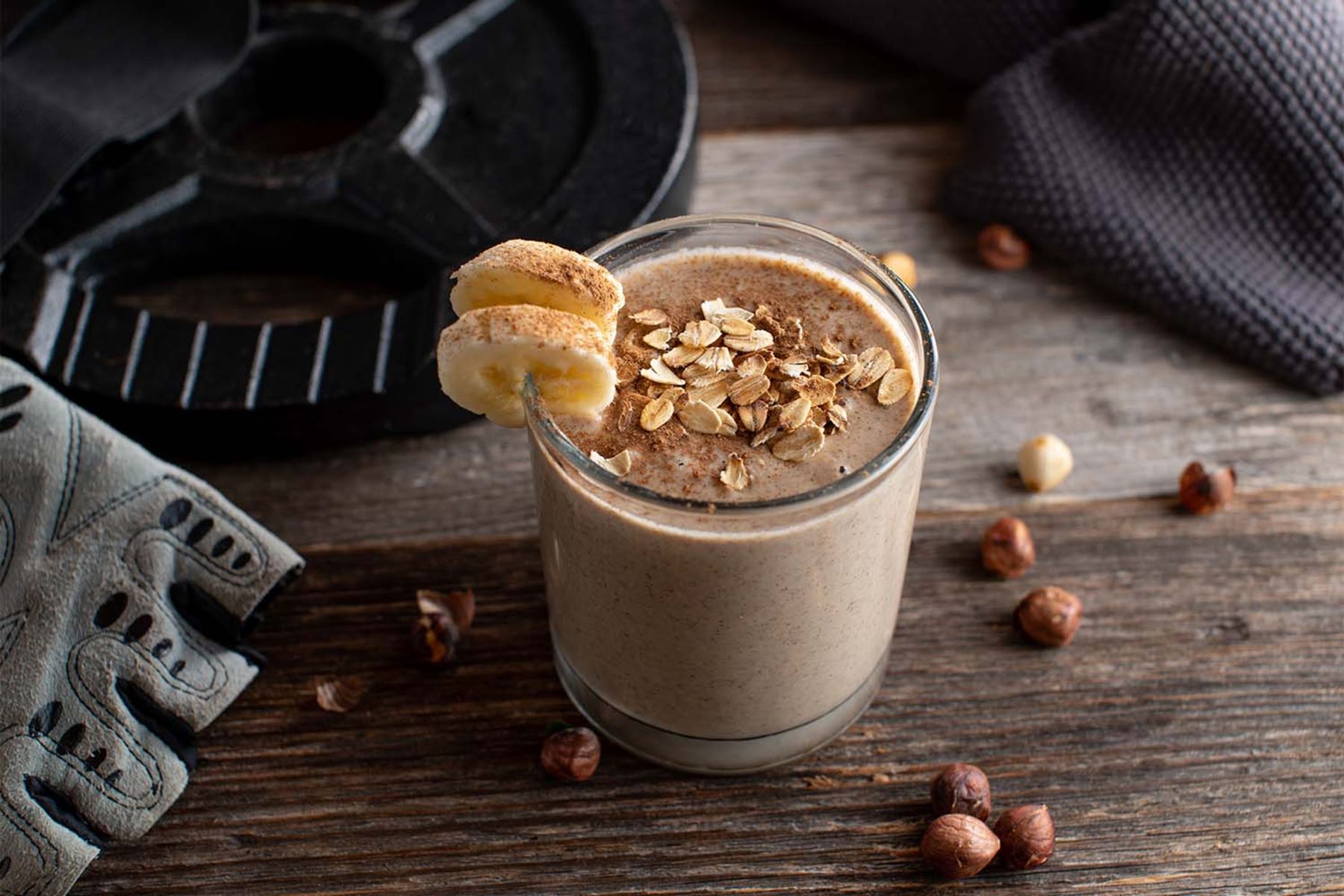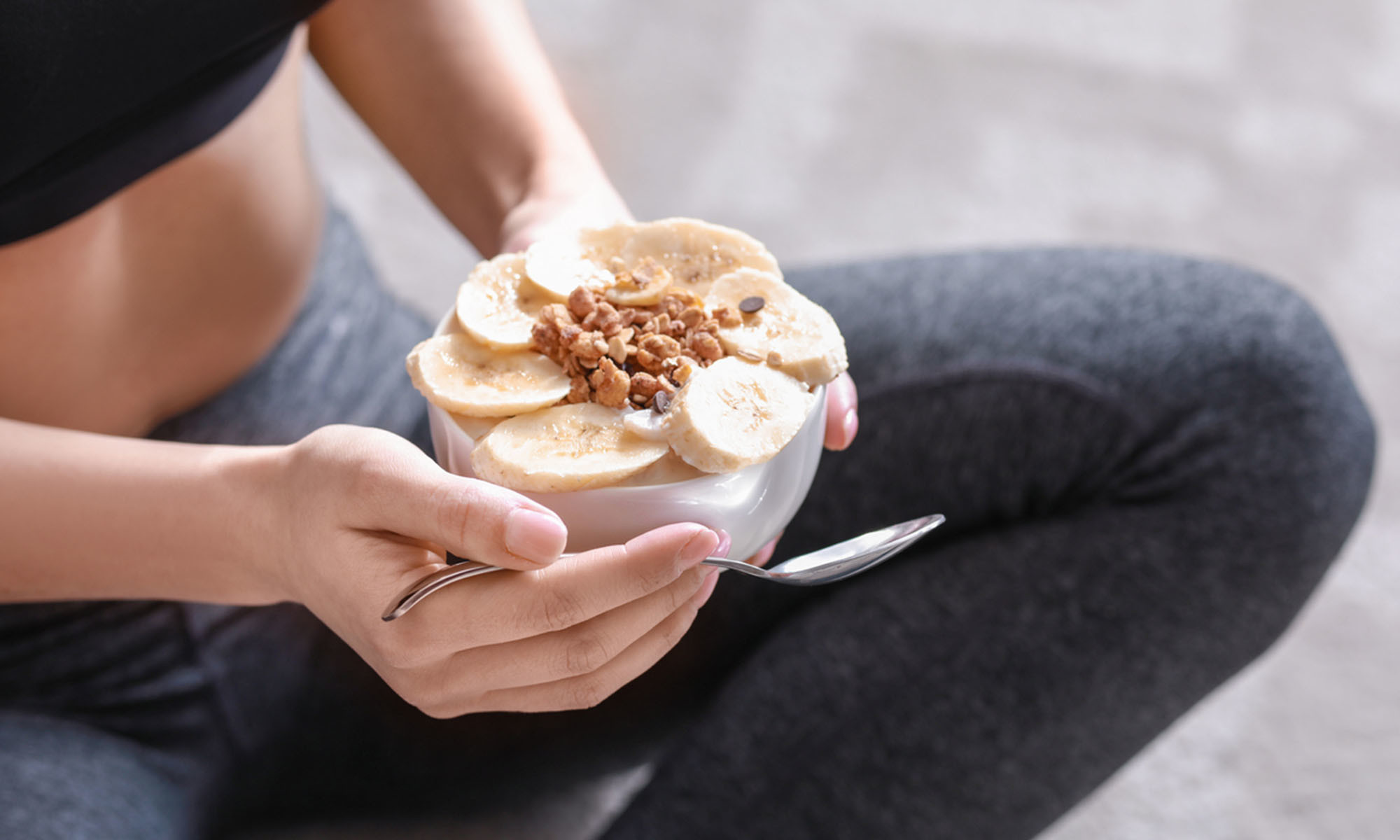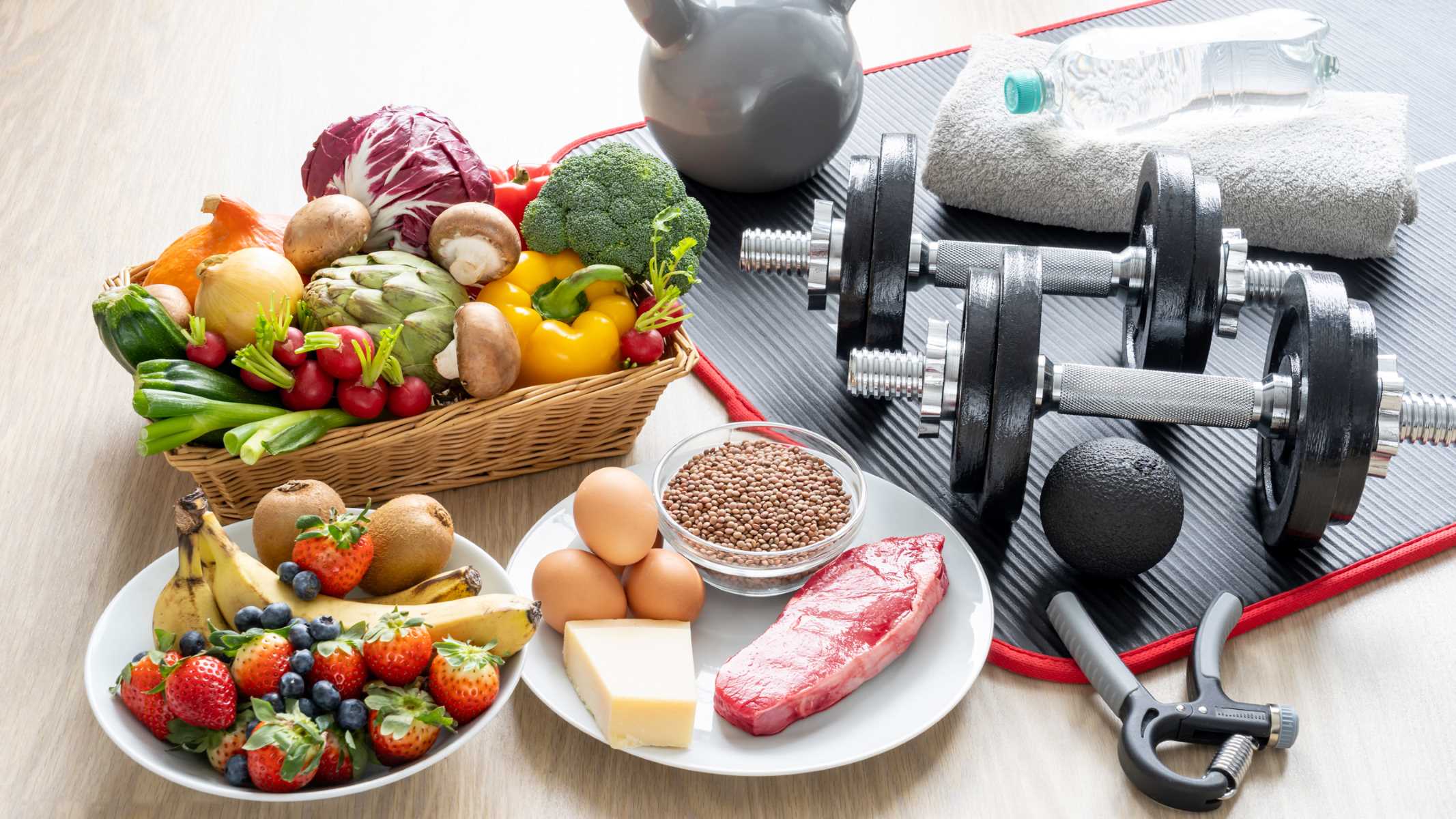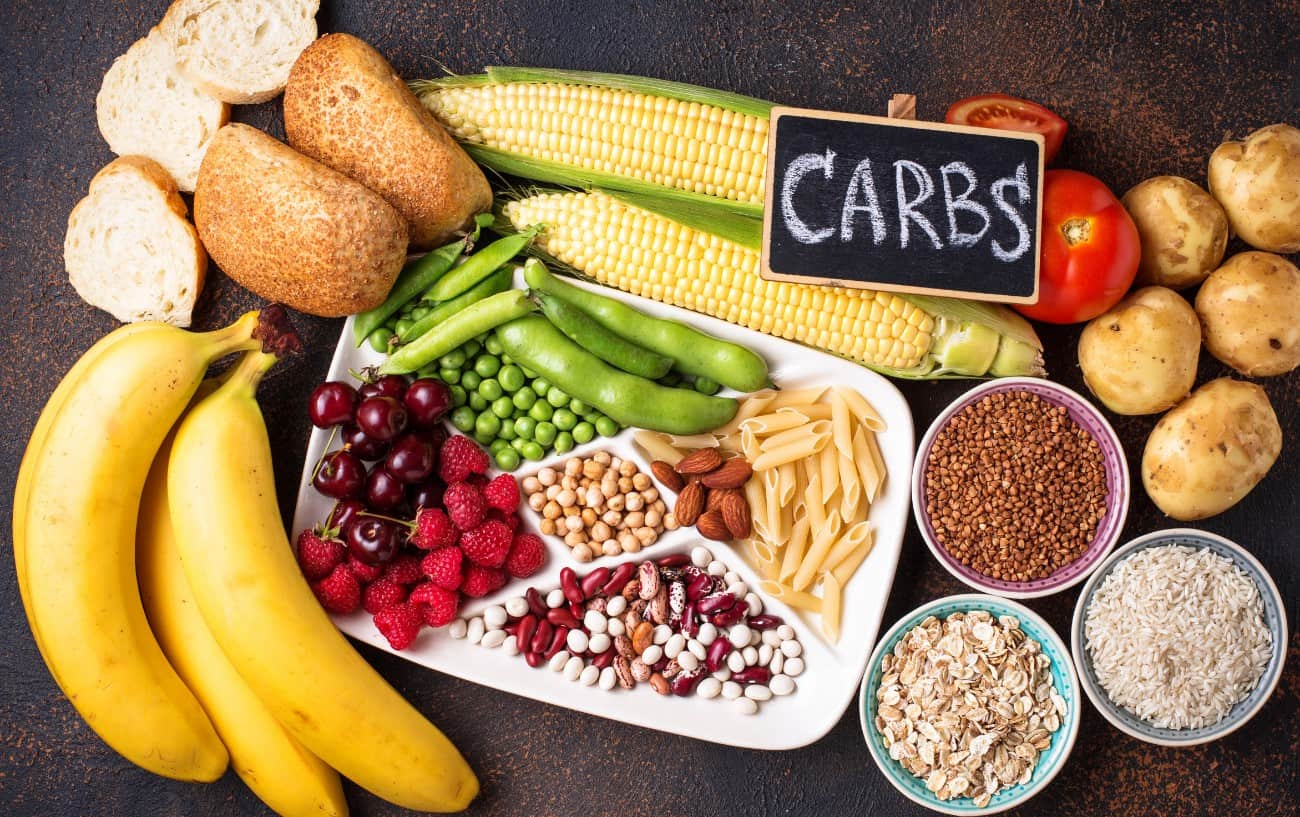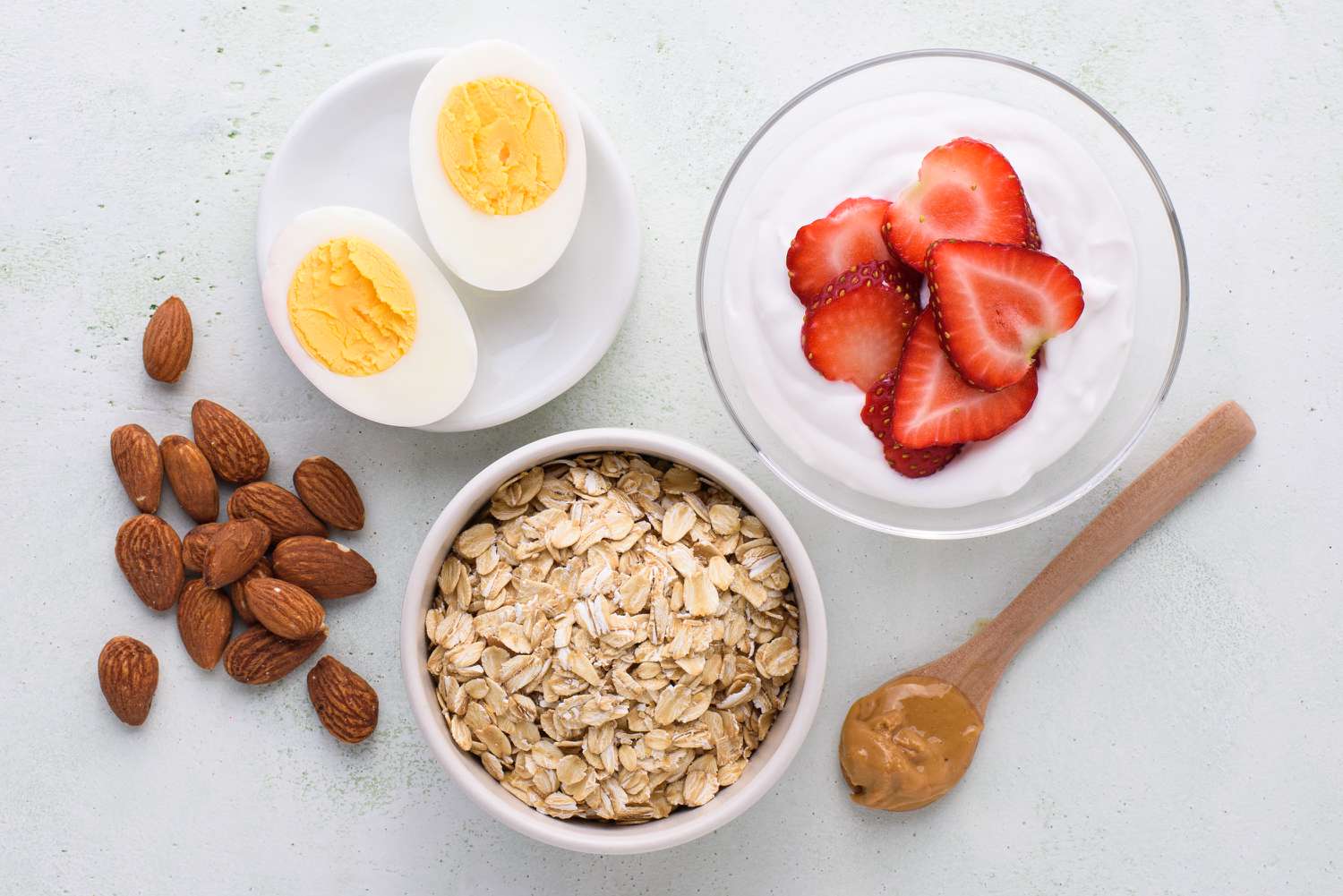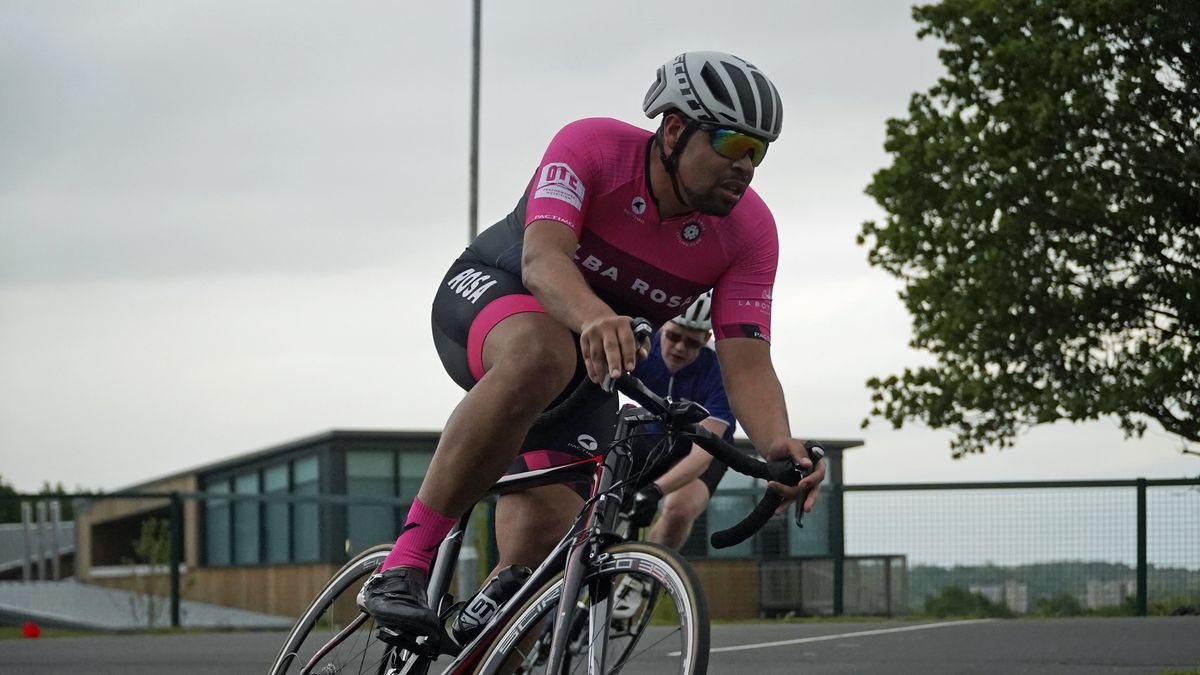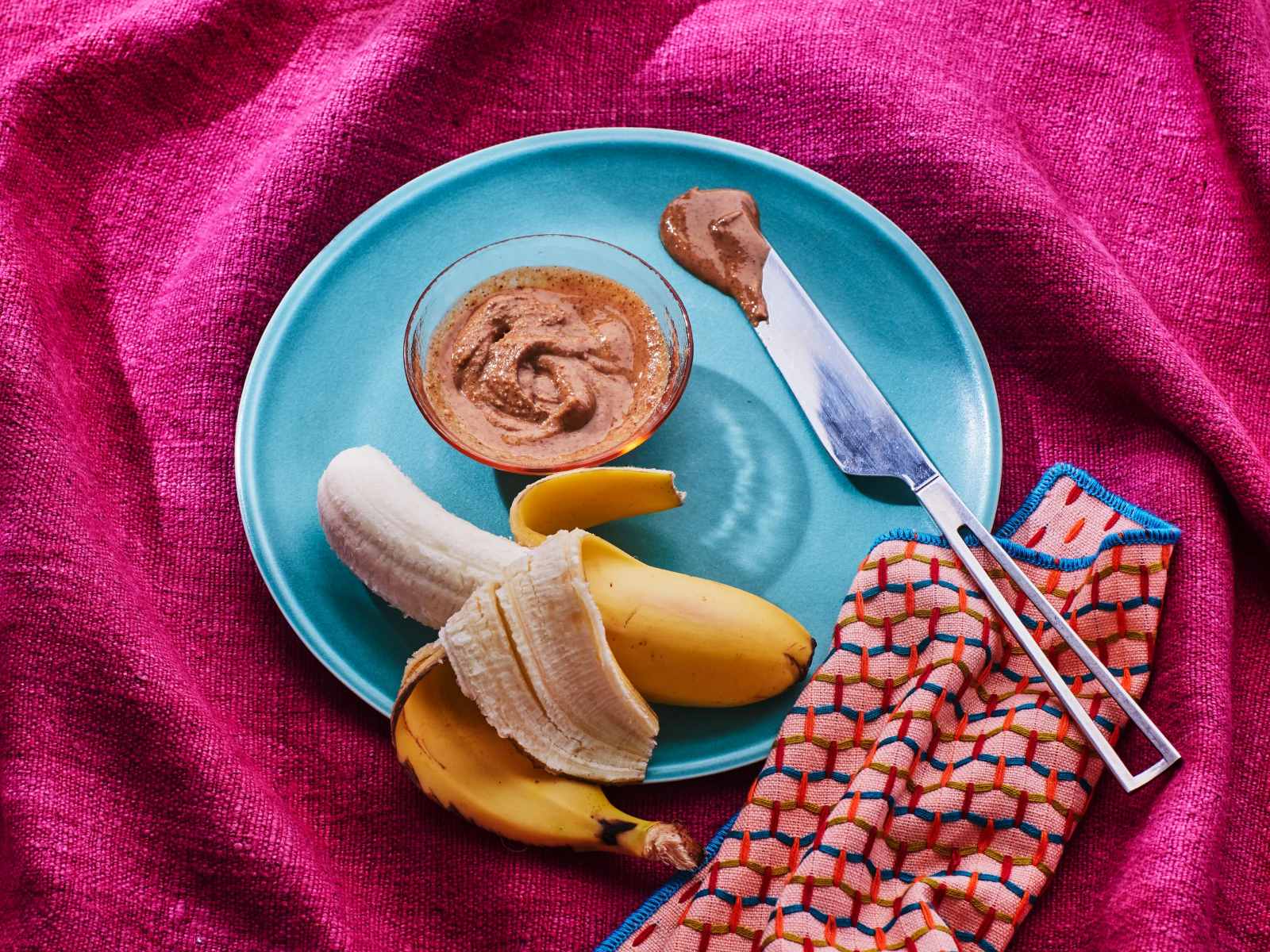

Featured
What To Eat Right Before A Workout
Modified: August 19, 2023
Fuel your workout with the right pre-exercise meal. Discover the best foods to eat before working out for optimal energy and performance. [Featured]
Introduction
When it comes to maximizing your workout performance, nutrition plays a crucial role. What you eat before a workout can determine how well you perform, how effectively you build muscle, and how quickly your body recovers. Pre-workout nutrition is essential for providing your body with the right fuel and nutrients to optimize your energy levels, enhance endurance, and promote muscle growth.
Many people underestimate the importance of pre-workout nutrition and often overlook the impact it can have on their fitness goals. Whether you are a professional athlete or a casual gym-goer, fueling your body with the right nutrients before a workout can dramatically improve your performance and overall results.
In this article, we will discuss the significance of pre-workout nutrition and explore the macronutrients that should be included in your pre-workout meal or snack. We will also provide you with some practical ideas for pre-workout meals and snacks, as well as address the question of whether pre-workout supplements are necessary. By the end of this article, you will have a clear understanding of how to properly fuel your body before a workout to optimize your performance and achieve your fitness goals.
Importance of Pre-Workout Nutrition
Pre-workout nutrition is essential for several reasons. Firstly, it provides your body with the fuel it needs to perform at its best during exercise. Without proper nutrition, your energy levels may be suboptimal, leading to decreased stamina and a lackluster workout. A well-balanced pre-workout meal or snack can help ensure that your body has the necessary fuel to power through your workout and achieve your fitness goals.
Secondly, pre-workout nutrition plays a crucial role in muscle building and repair. When you exercise, your muscles undergo stress and require nutrients to recover and grow stronger. By consuming the right combination of macronutrients before your workout, you can help facilitate muscle protein synthesis and support the muscle-building process.
Additionally, pre-workout nutrition can help enhance overall workout performance. A properly fueled body is more likely to have increased endurance, strength, and focus during exercise. This can lead to improved performance, whether you are lifting weights, engaging in cardiovascular activities, or participating in sports.
Furthermore, pre-workout nutrition can prevent muscle catabolism, which is the breakdown of muscle tissue for energy. When you exercise on an empty stomach or without adequate nutrition, your body may turn to muscle as a source of fuel, especially during prolonged or intense workouts. By consuming the right nutrients before your workout, you can provide your body with an alternative energy source and help preserve your hard-earned muscle mass.
Lastly, pre-workout nutrition is important for recovery. Properly fueling your body before a workout can help reduce post-workout muscle soreness and aid in the recovery process. Consuming the right nutrients, such as carbohydrates and protein, can help replenish glycogen stores, repair damaged muscle tissue, and promote muscle recovery.
Overall, understanding the importance of pre-workout nutrition can significantly impact your fitness journey. By fueling your body with the right nutrients before a workout, you can optimize your energy levels, enhance muscle growth, improve workout performance, prevent muscle breakdown, and promote efficient recovery.
Macronutrients for Pre-Workout Fuel
When it comes to pre-workout nutrition, it’s important to focus on consuming the right macronutrients to fuel your body for optimal performance. The three main macronutrients are carbohydrates, protein, and healthy fats. Each plays a unique role in providing energy, promoting muscle growth, and sustaining endurance during a workout.
Carbohydrates: Carbohydrates are the primary source of energy for your body. They are converted into glucose, which is then used to fuel your muscles during exercise. Including carbohydrates in your pre-workout meal or snack can help replenish glycogen stores and provide a readily available source of energy. Opt for complex carbohydrates such as whole grains, fruits, and vegetables, as they provide a steady release of energy throughout your workout.
Protein: Protein is essential for muscle building and repair. Consuming protein before a workout can help stimulate muscle protein synthesis and prevent muscle breakdown. Including a source of lean protein in your pre-workout meal or snack can provide amino acids that support muscle recovery and growth. Good sources of pre-workout protein include chicken, fish, eggs, Greek yogurt, or plant-based options like tofu or lentils.
Healthy fats: While carbohydrates are the primary source of immediate energy, healthy fats provide a sustained release of energy throughout your workout. Including a small amount of healthy fats in your pre-workout meal or snack can help keep you feeling satiated and provide a source of long-lasting energy. Opt for sources such as avocados, nuts, seeds, or olive oil.
In addition to these macronutrients, it’s important to stay hydrated before a workout. Proper hydration ensures optimal muscle function, performance, and recovery. Be sure to drink enough water throughout the day and consume fluids leading up to your workout.
In summary, a well-rounded pre-workout meal or snack should include a mix of carbohydrates, protein, and healthy fats. This combination will provide your body with the necessary fuel to sustain energy levels, support muscle growth, and enhance performance during your workout.
Carbohydrates: The Primary Source of Energy
Carbohydrates are the body’s preferred and primary source of energy. They are broken down into glucose, which is used by the muscles as fuel during physical activity. Consuming carbohydrates before a workout is crucial to ensure that your body has enough readily available energy to sustain intense exercise and optimize performance.
When it comes to pre-workout carbohydrates, it’s important to focus on complex carbohydrates rather than simple sugars. Complex carbohydrates are high in fiber and are digested more slowly, providing a steady release of energy to fuel your workout. On the other hand, simple sugars can cause a spike in blood sugar levels, followed by a crash in energy levels and potential fatigue during exercise.
There are several excellent sources of complex carbohydrates that you can include in your pre-workout meal or snack. Whole grains such as oatmeal, brown rice, whole wheat bread, and quinoa are packed with fiber and provide sustained energy for your workout. Fruits like bananas, apples, and berries are also excellent choices as they contain natural sugars, fiber, and other essential nutrients.
The timing of your pre-workout carbohydrate intake is also crucial. It’s recommended to consume carbohydrates 1-3 hours before your workout to allow for proper digestion and utilization by your body. This timeframe allows your body to break down the carbohydrates into glucose and store it as glycogen in the muscles, ready to be used during exercise.
However, for those who prefer early morning workouts or have limited time before their workout, consuming quick-digesting carbohydrates, such as a piece of fruit or a sports drink, 30-60 minutes before exercising can still provide a sufficient energy boost.
Overall, carbohydrates are the primary source of energy for your body, especially during intense physical activity. Including complex carbohydrates in your pre-workout nutrition plan ensures that your muscles have the necessary fuel to perform optimally, sustain energy levels, and enhance your workout performance.
Protein: Building and Repairing Muscles
Protein plays a vital role in pre-workout nutrition as it is responsible for building and repairing muscles. When you engage in physical exercise, especially resistance training, your muscles undergo stress and microtears. Consuming adequate protein before a workout can help stimulate muscle protein synthesis, the process by which your body builds new proteins, leading to muscle growth and repair.
Including a source of lean protein in your pre-workout meal or snack can provide the necessary amino acids for muscle recovery and growth. Amino acids are the building blocks of protein and help repair damaged muscle tissue, allowing for proper muscle recovery and adaptation to exercise.
Optimal protein sources for pre-workout nutrition include chicken, fish, lean meats, Greek yogurt, cottage cheese, eggs, and plant-based options like tofu or lentils. These protein sources provide a complete amino acid profile, which means they contain all essential amino acids that your body cannot produce on its own.
The timing of protein consumption is also important. Ideally, it’s recommended to consume protein within 1-2 hours before your workout to allow for digestion and absorption. This timeframe ensures that the amino acids from the protein are readily available during exercise to support muscle repair and growth.
However, if you’re short on time or prefer lighter pre-workout options, consider consuming a protein shake or smoothie made with whey protein or plant-based protein powder. These can be quickly digested and absorbed, providing a convenient and effective source of pre-workout protein.
It’s worth mentioning that while protein is crucial for pre-workout nutrition, it should be combined with carbohydrates for optimal results. Carbohydrates help provide the necessary energy for your workout, while protein supports muscle repair and growth.
Incorporating protein into your pre-workout routine can contribute to improved muscle recovery, enhanced muscle growth, and overall workout performance. By ensuring an adequate protein intake before your workout, you can maximize the benefits of your exercise regimen and achieve your fitness goals more effectively.
Healthy Fats: Sustained Energy Release
While carbohydrates are the primary source of immediate energy, healthy fats play an essential role in sustaining energy levels during your workout. Including a small amount of healthy fats in your pre-workout meal or snack can provide a steady release of energy and help keep you fueled throughout your exercise session.
Healthy fats are nutrient-dense and provide more calories per gram compared to carbohydrates and protein. However, they are also slower to digest, resulting in a sustained release of energy that can help prevent energy crashes during your workout.
When it comes to choosing healthy fats for pre-workout nutrition, focus on monounsaturated and polyunsaturated fats, commonly found in foods like avocados, nuts, seeds, and olive oil. These fats have been shown to have numerous health benefits, including promoting heart health and reducing inflammation.
Incorporating healthy fats into your pre-workout meal or snack can help enhance satiety, preventing hunger pangs and keeping you feeling fuller for longer. This can be particularly beneficial during longer workout sessions or endurance activities.
It’s worth noting that while including healthy fats in your pre-workout nutrition is beneficial, moderation is key. Since fats are more calorie-dense, consuming excessive amounts may lead to digestive discomfort or sluggishness during your workout. Aim for a balanced approach by incorporating a small amount of healthy fats alongside your carbohydrates and protein sources.
Timing is also important when it comes to consuming healthy fats before a workout. It’s best to consume them at least 1-2 hours before your workout to allow for proper digestion. This timing ensures that the fats are broken down and used as a sustained energy source during exercise.
In summary, including a moderate amount of healthy fats in your pre-workout nutrition can provide sustained energy release, enhance satiety, and prevent energy crashes during your workout. By incorporating sources like avocados, nuts, seeds, or olive oil, you can optimize your energy levels and improve overall exercise performance.
Hydration: Essential for Optimal Performance
Proper hydration is a crucial aspect of pre-workout nutrition and is essential for optimal performance during exercise. When you are not properly hydrated, your body may experience decreased cognitive function, impaired muscle contraction, and reduced stamina. Staying hydrated before, during, and after your workout helps ensure that your body can perform at its best.
Water is the most important fluid for hydration, and its consumption should be prioritized before a workout. It’s recommended to drink water throughout the day leading up to your exercise session to ensure that you are adequately hydrated. However, it’s also important to pay attention to your body’s hydration cues and drink additional water if you are feeling thirsty.
The timing of water consumption is crucial as well. It’s recommended to consume 14-22 ounces (or 400-600 milliliters) of water 2-3 hours before your workout to allow for proper hydration and to give your body enough time to absorb and utilize the water. Additionally, drinking 8-12 ounces (or 230-350 milliliters) of water 10-20 minutes before your workout can help ensure that your body is well hydrated and ready for exercise.
For intense or prolonged workouts, it can also be beneficial to consume beverages that contain electrolytes, such as sports drinks or coconut water. Electrolytes, including sodium, potassium, and magnesium, help maintain fluid balance in the body and can be lost through sweat. These beverages can help replenish electrolytes and provide additional hydration support.
It’s important to note that individual hydration needs may vary based on factors such as body weight, sweat rate, and exercise intensity. It’s essential to listen to your body’s signals and hydrate accordingly. If you’re unsure about your hydration status, monitoring the color of your urine can provide valuable insights. Clear or pale yellow urine is a good indicator of adequate hydration, while dark yellow urine may indicate dehydration.
In summary, proper hydration is essential for optimal performance during a workout. By prioritizing water intake, paying attention to your body’s hydration cues, and consuming electrolyte-rich beverages when necessary, you can ensure that your body is properly hydrated, promote better endurance, and maximize your overall workout performance.
Pre-Workout Meal Ideas and Timing
Eating a well-rounded meal before a workout can provide your body with the necessary fuel and nutrients to enhance your performance and support muscle growth. The timing of your pre-workout meal is crucial to ensure proper digestion and utilization of nutrients. Here are some pre-workout meal ideas along with their recommended timing:
1. Balanced Meal (1-3 hours before): A balanced pre-workout meal that includes a combination of carbohydrates, protein, and healthy fats can provide sustained energy and promote muscle recovery. For example, grilled chicken or fish with quinoa or brown rice, and a side of steamed vegetables can provide a well-rounded meal. Aim to consume this meal 1-3 hours before your workout to allow for proper digestion.
2. Smoothie with Protein (1-2 hours before): If you prefer a lighter option, a smoothie can be a convenient and nutritious pre-workout choice. Blend together a scoop of protein powder, frozen fruits, spinach, a tablespoon of nut butter, and almond milk or water. This combination provides carbohydrates, protein, and healthy fats. Consuming this smoothie 1-2 hours before your workout allows for digestion and absorption of nutrients.
3. Oatmeal with Fruit and Nuts (1-2 hours before): Oatmeal is an excellent source of complex carbohydrates while fruits add natural sugars and vitamins. Top your oatmeal with sliced bananas or berries, a handful of nuts, and a drizzle of honey. This combination provides sustained energy and essential nutrients. Having this meal 1-2 hours before your workout gives your body enough time to digest the carbohydrates and release energy during exercise.
4. Greek Yogurt with Berries and Granola (30-60 minutes before): If you have limited time before your workout, a quick and light snack can still provide adequate fuel. Greek yogurt is high in protein and pairs well with fresh berries and a sprinkle of granola. This snack provides both protein and carbohydrates. Aim to consume it 30-60 minutes before your workout to allow for quick digestion and utilization of nutrients.
Remember, these are just a few examples, and you can customize your pre-workout meal based on your preferences and dietary needs. Be sure to listen to your body and adjust portion sizes accordingly. Additionally, it’s essential to experiment with different pre-workout meal options and timing to find what works best for you. Pay attention to how your body responds to different meals and adjust accordingly to optimize your performance.
Snack Options for Quick Energy
For those times when you need a quick boost of energy before a workout, having a snack that provides easily digestible carbohydrates can be beneficial. Here are some snack options that can provide quick energy to fuel your workout:
1. Banana: Bananas are an excellent snack choice before a workout as they are rich in carbohydrates, natural sugars, and potassium. The carbohydrates in bananas provide a quick source of energy, while potassium helps prevent muscle cramps. Pair a banana with a small handful of nuts for added protein and healthy fats.
2. Energy bar: Look for energy bars that are specifically designed for pre-workout consumption. These bars are typically made with a combination of quick-digesting carbohydrates and sometimes include protein. Read the labels and choose those that are low in added sugars and contain whole food ingredients.
3. Rice cakes with nut butter: Rice cakes are a light and easily digestible snack that provide carbohydrates for quick energy. Spread some nut butter, like almond or peanut butter, on top for a bit of protein and healthy fats. This combination can help keep you energized throughout your workout.
4. Greek yogurt with honey: Greek yogurt is a great source of protein, while honey provides carbohydrates for energy. This combination can provide a balance of nutrients for sustained energy release. Choose Greek yogurt without added sugars and pair it with a tablespoon of honey for natural sweetness.
5. Trail mix: Create your own trail mix with a combination of dried fruits, nuts, and seeds. Dried fruits, such as raisins or dried cranberries, provide quick carbohydrates, while nuts and seeds add protein and healthy fats. Be mindful of portion sizes as trail mix can be dense in calories.
6. Apple slices with nut butter: Apple slices are a refreshing and hydrating option, providing carbohydrates and natural sugars. Pair them with a dollop of nut butter for added protein and healthy fats. This snack can provide quick energy and keep you feeling satisfied throughout your workout.
These snack options are lightweight, easily portable, and provide a quick source of energy. They are ideal for when you don’t have much time before your workout but still want to fuel your body appropriately. Remember to choose snacks that are easily digestible and avoid those high in added sugars or unhealthy fats.
Pre-Workout Supplements: Are They Necessary?
Pre-workout supplements have gained popularity in the fitness industry, promising increased energy, focus, and performance during workouts. While these supplements can provide benefits, it’s important to understand if they are necessary or appropriate for your fitness goals and individual needs.
Pre-workout supplements typically contain a combination of ingredients such as caffeine, beta-alanine, creatine, and amino acids. These ingredients are intended to boost energy levels, improve focus, increase endurance, and promote muscle recovery. However, it’s important to note that the effectiveness of these supplements can vary among individuals, and their benefits may not be necessary for everyone.
For individuals who follow a well-balanced diet and have no specific nutrient deficiencies, pre-workout supplements may not be necessary. A balanced diet that includes adequate carbohydrates, protein, fats, and hydration can provide sufficient fuel for workouts and support optimal performance.
However, there are certain situations where pre-workout supplements may be beneficial. They can be helpful for individuals who have low energy levels or struggle with fatigue during workouts. Additionally, some supplements can provide a convenient way to consume specific nutrients like caffeine or creatine, which can have performance-enhancing effects.
It’s important to approach pre-workout supplements with caution and consult with a healthcare professional or registered dietitian before incorporating them into your routine. They can assess your individual needs, review the ingredients in the supplements, and provide guidance on whether they are appropriate for you.
Another point to consider is that some pre-workout supplements contain high amounts of caffeine or other stimulants, which may have potential side effects such as increased heart rate, jitteriness, and difficulty sleeping. It’s crucial to understand your tolerance to these substances and use them in moderation.
Ultimately, the decision to use pre-workout supplements is a personal one. It’s essential to prioritize a healthy and balanced diet, proper hydration, and adequate rest for overall well-being and workout performance. Supplements should not be relied upon as a substitute for a healthy lifestyle or used as a quick fix for poor nutrition habits.
In summary, pre-workout supplements can provide benefits for some individuals, but they are not necessary for everyone. It’s important to assess your individual needs, consult with a healthcare professional, and prioritize a well-rounded diet and lifestyle to optimize your workout performance and achieve your fitness goals.
Conclusion
Optimizing your nutrition before a workout is key to enhancing your performance, fueling your muscles, and achieving your fitness goals. Pre-workout nutrition should focus on providing your body with the right balance of macronutrients, including carbohydrates, protein, and healthy fats. Carbohydrates provide the primary source of energy, protein aids in muscle building and repair, and healthy fats sustain energy release. Hydration is also essential for optimal performance, so be sure to drink enough water leading up to your workout.
When planning your pre-workout meals or snacks, consider the timing as well. Aim to consume a balanced meal containing carbohydrates, protein, and healthy fats 1-3 hours before your workout to allow for proper digestion and utilization of nutrients. If you have limited time, opt for a light snack with quick-digesting carbohydrates and a small amount of protein around 30-60 minutes before exercise.
While pre-workout supplements can be beneficial for some individuals, they are not necessary for everyone. It’s important to evaluate your individual needs, consult with a healthcare professional, and prioritize a well-rounded diet and lifestyle before considering supplements.
Ultimately, understanding the importance of pre-workout nutrition and customizing your meals or snacks to suit your needs can significantly enhance your workout performance, support muscle growth and repair, and improve overall fitness outcomes. By fueling your body with the right nutrients and staying hydrated, you can maximize your workouts and take significant strides towards achieving your fitness goals.

